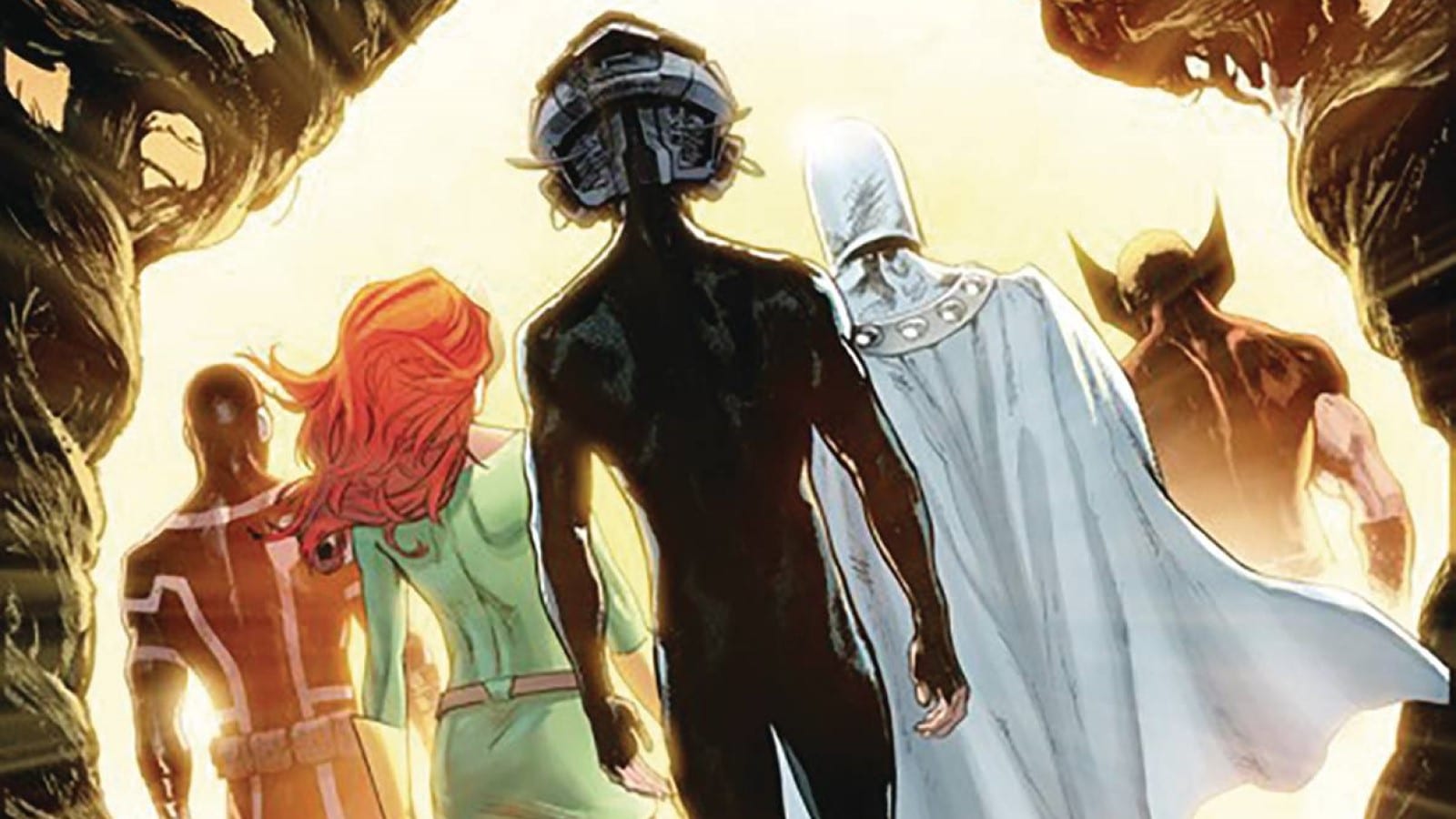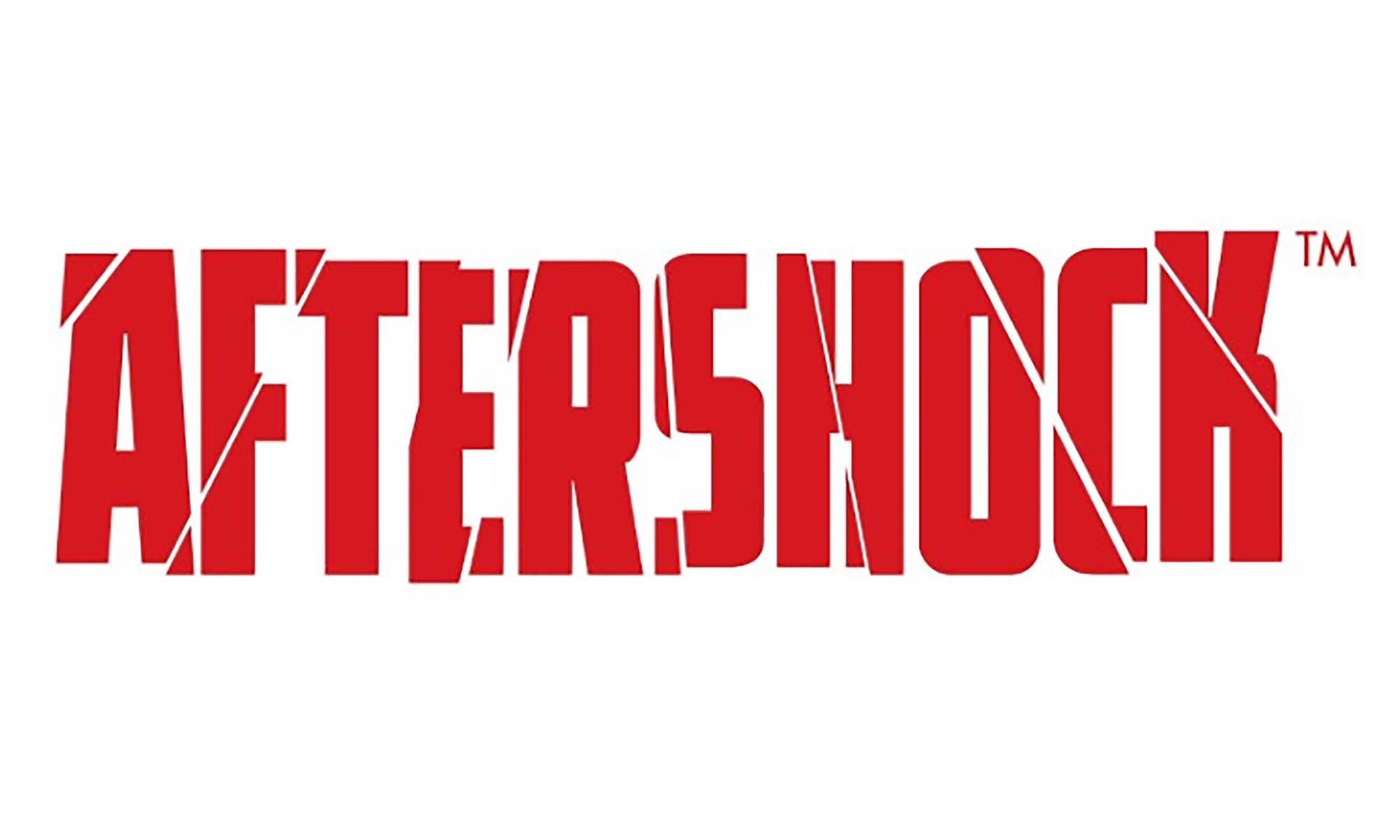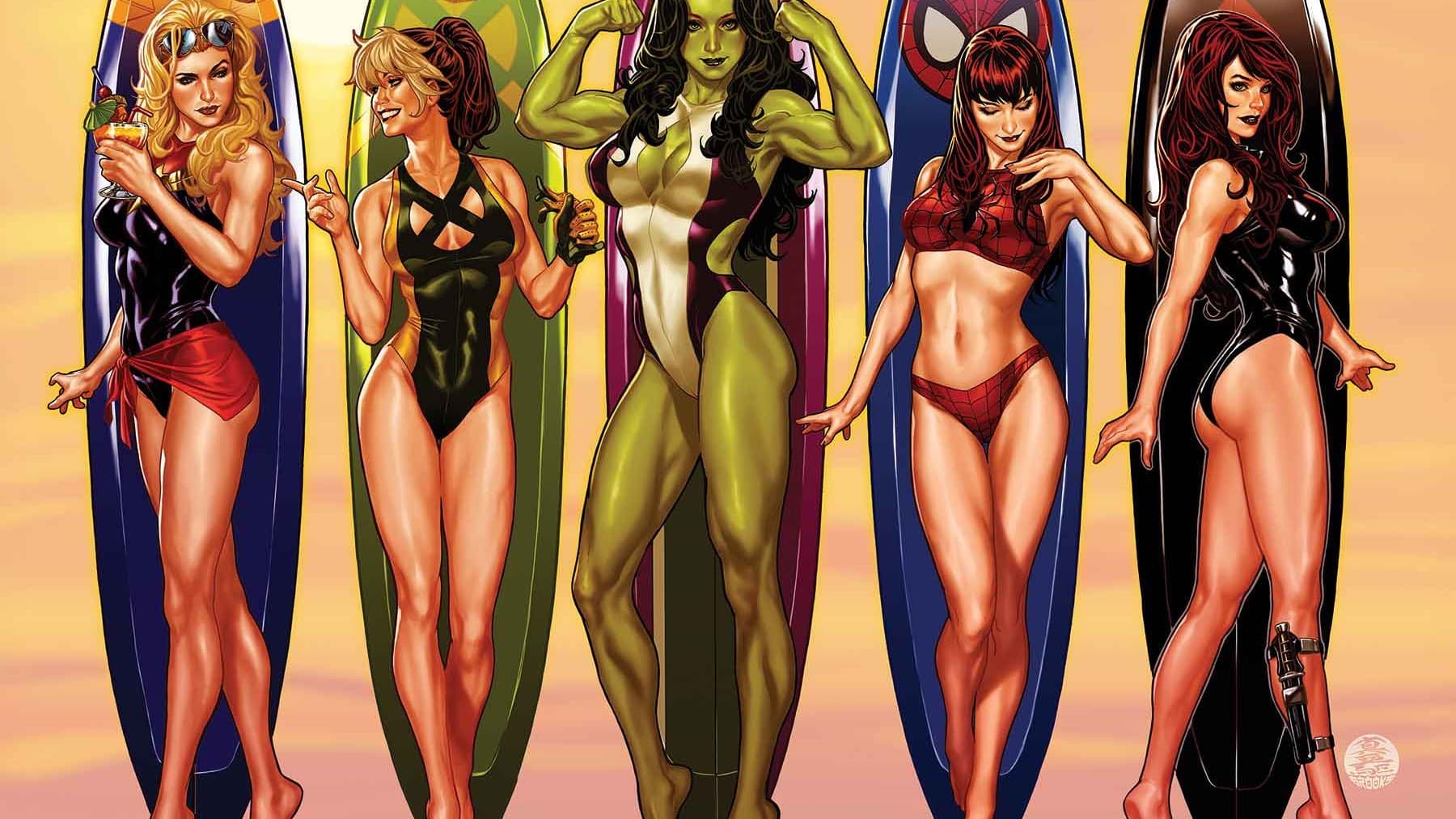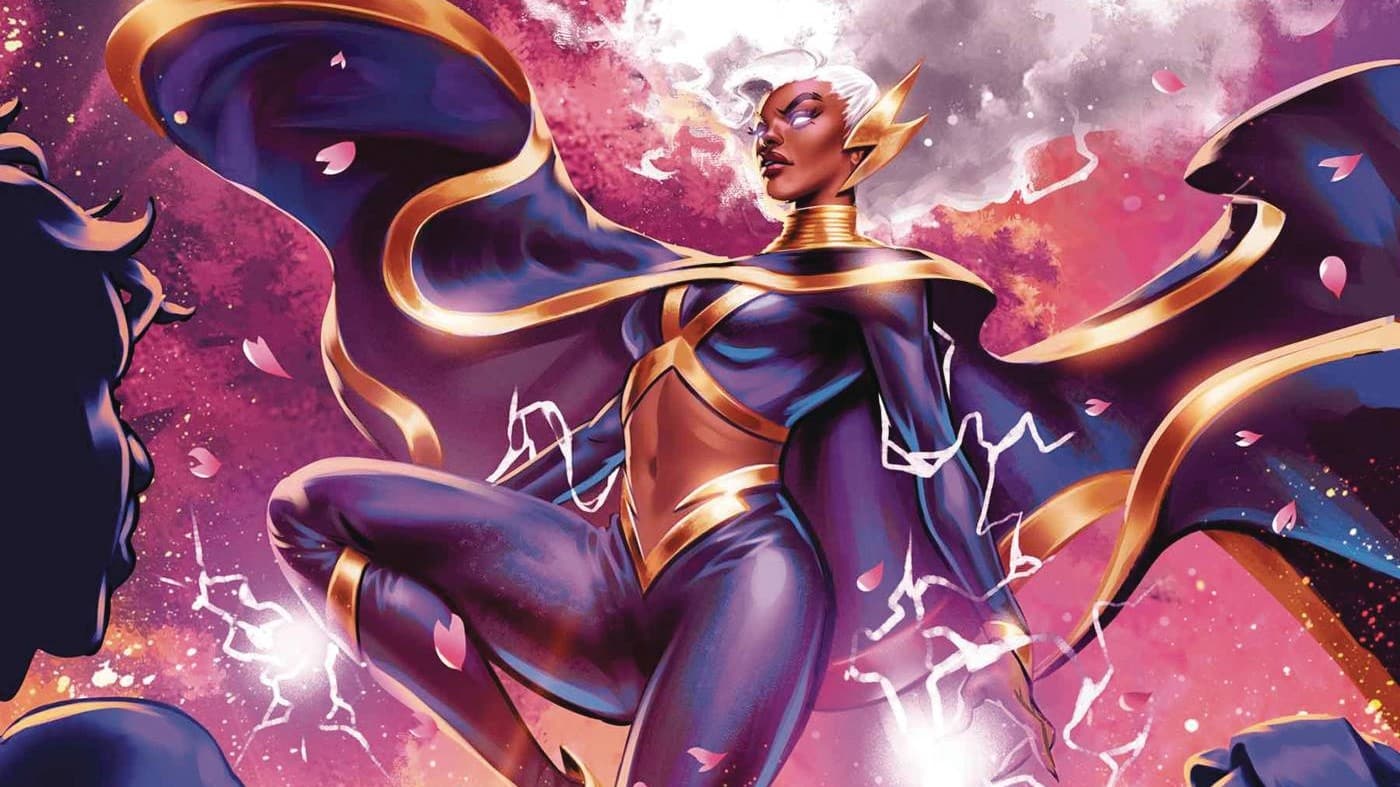The first thing you should know is that without Krakoa, I might not be alive. If I don’t pick up that Black Panther comic in 2016 and fall in love with the genre … if the Xavier Files doesn’t do those brilliant deep dives into those introductory House of X and Powers of X books …
If a clinically depressed guy in his 30s, using writing to heal himself, doesn’t blindly send a DM to Zack Jenkins with a whole essay attached, if Zack doesn’t read and publish and invite me to write more, to heal more, to latch on to something to keep me here …
If any one of those things doesn’t happen, then I might not be happening now. So yes, I’m irrationally attached to and thankful for the idea of Krakoa, an idea that’s allowed me to share my ideas with a (not so) small sliver of the world. And as that idea is now past, it absolutely feels like a part of me is passing, too.
And yet.
The second thing you should know is I am a Black man. In a medium controlled almost exclusively by white men, whose target audience is clearly, blindingly, frustratingly, exclusively straight white men with arrested development, being a Black man means having an unhealthy attachment to crumbs. Getting excited when you see a Black name attached to a project, or a Black character shuffled to the forefront, or a character’s culture and personality fleshed out beyond a simple stereotype. Breadcrumbs become entire meals, and meals, rare as they may be, become entrenched in your mind as legendary buffets.
None of this is good or healthy; none of this is right or necessary. But it is, as they say, what it is. Krakoa’s appeal was less in what it achieved — the main characters and writers were still largely white (though not at all straight — we see you, Scott and Jean and Logan), but the themes around culture and assimilation and assertion — these were analogous to the way in which I perceived and interacted with my culture. Krakoa as a concept was messy and incomplete (and, it should be noted, largely conceived and directed by a heterosexual white man); and yet, despite all of that, maybe even because of some of that, it felt genuine and honest in a way so many other comics hadn’t. The idea was enticing. The ideas were grandiose and magnificent.
The execution, however …
The third thing you should know is that I’m a Morehouse Man. As a Morehouse Man, I’ve almost always got a Dr. King or Benjamin E. Mays quote in the back of my mind. So, of the end of Krakoa, I feel compelled to quote Dr. Mays — “Not failure, but low aim is sin”
Those grandiose ideas, seeded in House of X and Powers of X, teased throughout those first 21 X-Men issues and X of Swords — ideas that included bringing life to Mars (again); time travel and dimensional transcendence; creating a culture where, for once, aggrieved stand-ins for minorities were not losing, not dying, not being dependent on the kindness of strangers and Avengers that never seems to materialize on time, but rather defining themselves for themselves, transcending (there’s that word again) beyond simple “good guys” and “bad guys” to something more.
All beautiful concepts, executed inconsistently in ugly contrast to the esteem in which I held the idea.
Such is life.
For every Sabretooth #1 or S.W.O.R.D. #6, for every Resurrection of Magneto #1 or X-Men (2019) #4, there were too many disconnected, aggressively mediocre issues, increasingly untethered to the ideals and excellence upon which my obsession with Krakoa was founded.
I didn’t mind that every big idea didn’t land for me (looking at you, Threshold); I didn’t care that every comic wasn’t my cup of tea (here’s looking at you, Way of X) — no, what bothered me, especially toward the end, was the lack of originality with which things ended. Big robots and bigots upended by a scrappy, small group of mutants. To begin an era with a paradigm shift, only to end it with a regression to the norm — this, this low aim was sinful.
I fear no absolution is on the horizon.
The last thing you should know is that I’m an optimist. Really. I believe, as Dr. King said, “the moral arc of the universe is long, but it bends toward justice.” Salvation may not be just around the corner, but it’s somewhere, on the other side of that rainbow birthed by a torrential downpour of tears. The best is yet to come.
But that doesn’t mean what’s immediately to come is the best.
And that’s OK.
None of the pitches for the new books appeal to me; none of them feel revolutionary, or transcendent in any way like House of X/Powers of X did five years ago. Sure, I trust Dr. Ewing to craft a good story; I’m genuinely curious to see how a Nigerian writer will craft Storm’s path. Phoenix looks cool!
But nothing feels necessary.
And that’s OK.
Comics are for everyone, not just me. Everyone doesn’t appreciate intricately intertwined stories; some people just want to see cool looking people in skin tight clothing beat each other up while making sarcastic quips. I had my time, and my time came right on time for me. Somewhere in the world, someone at their wits’ end will stumble their way into a comic book store by happenstance, inspired by a cartoon to check out a comic about messy outcasts. Maybe this intentionally lower-stakes entry point will allow them a way to find something they love.
Maybe that love will help them find a way to love themselves like it has for me.
So yes, I mourn for what I’ve lost, and yet I’m still hopeful that someone will find love where I see loss.
Comics can break your heart, but they can mend it, too.
Here’s hoping the ashes of my burned-out heart blossom into something beautiful for someone else.
As for me, well, I’ll just retreat to the White Hot Room, and sit in waiting with the rest of my brethren until our names are called again.
A part of me may have passed, but the comic world — and my words inspired by that world — live on eternally.
Krakoa really was for Lovers.
A proud New Orleanian living in the District of Columbia, Jude Jones is a professional thinker, amateur photographer, burgeoning runner and lover of Black culture, love and life. Magneto and Cyclops (and Killmonger) were right. Learn more about Jude at SaintJudeJones.com.






